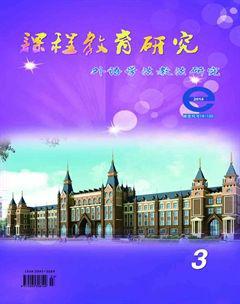The Application of Affective Factors in English Teaching
李海玲
【Abstract】The thesis explores the definition of affection, three factors of affection in impacting on English learning, and some strategies to promote students ability of English learning. This thesis gives a large number of examples, aiming at better reflecting the use of affective factors.
【Key words】English teaching; affective factors; strategies
【中图分类号】G633.41 【文献标识码】A 【文章编号】2095-3089(2014)03-0004-01
In the teaching process, usually we put too much emphasis on the learners' cognitive function, but did not fully take into account the learners' non-intellectual factors, that is, affective factors, that impact on learning, which result in emotional illiteracy (Goleman, 1995). Therefore, to study the impact of affective factors on English Teaching and explore the law of teaching have great significance on improving the English teaching.
Krashen believes that affective factors, including the three factors of motivation, self-confidence, and anxiety.Motivation often shows a strong desire for learning and thirst for knowledge; it is an internal driving force to promote learning. Motivation can be divided into the following four categories: Integrative motivation and Instrumental motivation, Intrinsic motivation and Extrinsic motivation. Self-confidence is the proper understanding and assessment of the individuals on their own beliefs, abilities and strength to solve the problem, and to be successful. It is well known that people with higher self-confidence will have more chance to succeed.
In answer to the question of for what to learn English well, there are six different answers, of which, 93.7 percent of students in order to learn the language knowledge, and communicate with foreigners; 45% of the students in order to be able to go abroad; 94% of the students to become "good student" by the recognition of parents or teachers; 81% of the students in order to satisfy curiosity; six percent of students not know why. Thus, their motivation to learn both from the external motivation in order to obtain the recognition of teachers and parents, but also stems from curiosity, intellectual curiosity and desire to explore the internal motivation.
During this survey, it was found that 85% of the 225 students have lack of self-confidence. 65% of them are out of fear, 20% of them are afraid of the difficulties and fear of error, and they do not want to lose their face. Only 15% of them are full of confidence, many of them learn English from childhood and have accepted good exercise and practice. So as English teachers, it is very important to help students build confidence and encourage them be full of courage to face difficulties in English learning.
Teachers can use affective factors to establish a harmonious relationship between student and them. As is said in the educational psychology, harmonious teacher-student relationship can stimulate the identity of the student towards teachers' words and deeds so as to stimulate students to accept the teachers teaching enthusiasm.
endprint
For example, teachers can pass their care for students by voice, smile, action and eyes contacting and other subtle information so that students feel the teachers care and are encouraged to produce motivation and interest and will stimulate students to study hard. In the classroom, teachers should take a lot encourage words to students so that our English class students actively explore the learning hall. For example, we can say “Its good.”” Excellent”,” You are so wonderful.”” Well done.” etc.
Teachers should use affective factors to promote students interest. Firstly, teachers are full of care in teaching, which is the key to cultivate students English learning interest. Secondly, changing the teaching style and methods, this is the means to keep students interested in English. From a psychological point, a single form is easy to cause the brain to stimulate the monotony so that it inhibits excited feeling and reduces learning efficiency.
Emphasis on the teaching of affective factors and doing affection teaching and gradually achieve the rational factors and irrational factors integration is a trend of development of modern education. The high-tech development calls for high affection. So it is more necessary to apply the affective factors in English teaching.
Reference:
[1]Brown.H.D.Principles of Language Learning and Teaching [M]. New Jersey: Prentice Hall, 1987:89-91.
[2]Ellis Rod.The Study of Second Language Acquisition [M] Oxford University Press.1994:23-25.
[3]戴蔓纯.情感因素及其界定[J].外语教学与研究,2000:34-36.
[4]王初明.应用心理语言学——外语学习心理研究[M].湖南教育出版社,1991:32-36.
endprint

